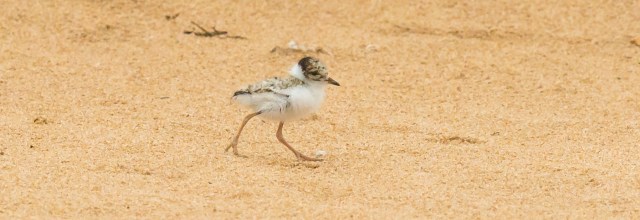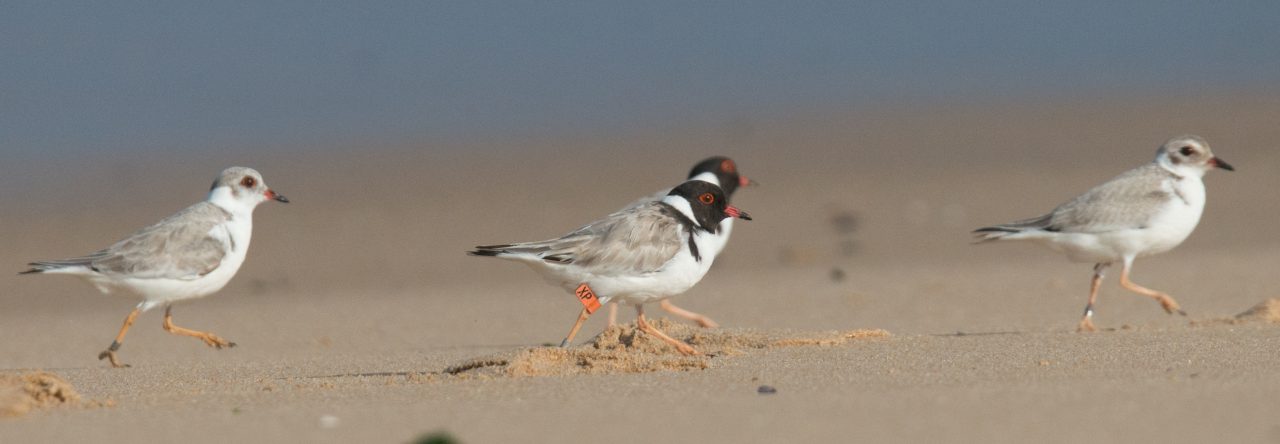The Hooded Plover could be considered the iconic fauna species of the Mornington Peninsula (MP). This diminutive shore bird selectively favours our ocean beaches where over the busy breeding season from September to April it occupies specific breeding territories to lay its eggs. The exposed nests are usually found above the high tide mark on the beach or dune and are incubated for 28 days. The chicks that hatch must survive for 35 days, feeding along the shoreline before they are able to fly.

The threats to their survival are numerous. Many nests are washed away by high tides and large swells. Eggs and chicks can be predated by a host of species including, ravens, gulls, magpies, foxes, cats, dogs and various birds of prey. Nests and chicks can be inadvertently crushed by humans, dogs, horses and beach vehicles. Chicks can starve because disturbance prevents them feeding and nests can fail because disturbance keeps adults from incubating the eggs.

According to Dr Grainne Maguire, project manager of Birdlife Australia’s Beach-nesting Team, this attraction to our MP beaches maybe to the detriment of the species. Of the 28 coastal reserves and national parks managed by Parks Victoria, the Mornington Peninsula National Park (MPNP) has the largest number of Hooded Plovers. From recent surveys, we know there are around 35 breeding pairs plus additional birds actively competing for these prime territories. Thus the Mornington Peninsula is home to around 12% of the total Victorian population of 550 Hooded Plovers.
However, this is the dilemma. According to Dr Maguire’s research, of all the reserves and National Parks managed by Parks Victoria, the MPNP has in recent years had the lowest rate of chick survival. So birds are actively and preferentially taking up breeding sites on MP beaches with a very poor likelihood of success.
For more detailed information on the biology, threats and governmental status of the Hooded Plover go to https://mybeachbird.com.au/
If your interested in becoming a friend of the Hooded Plover on the Mornington Peninsula contact Mark at: hploversmornpen@gmail.com
